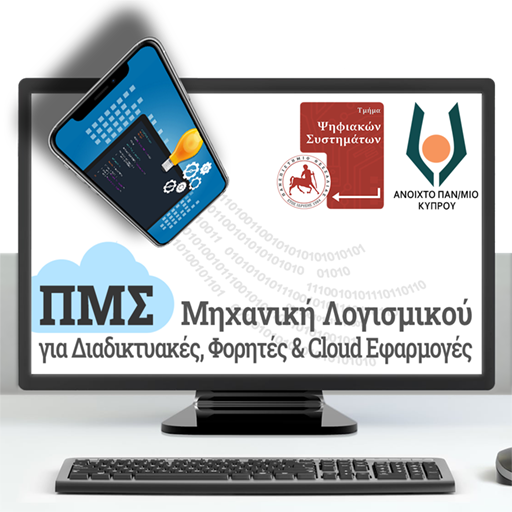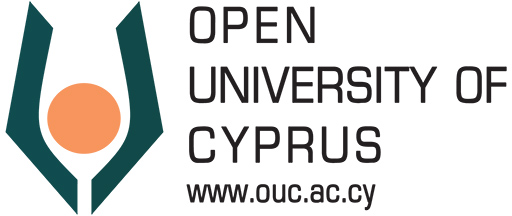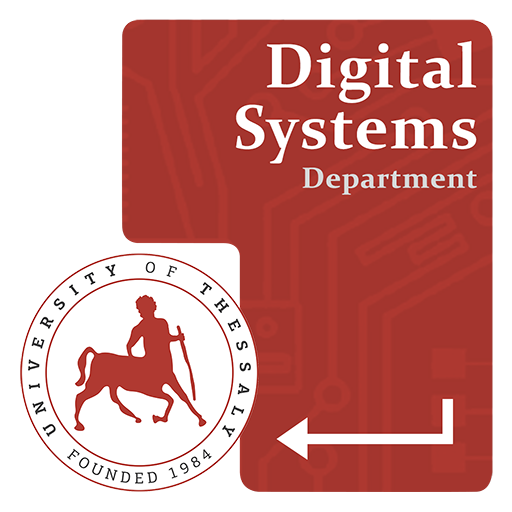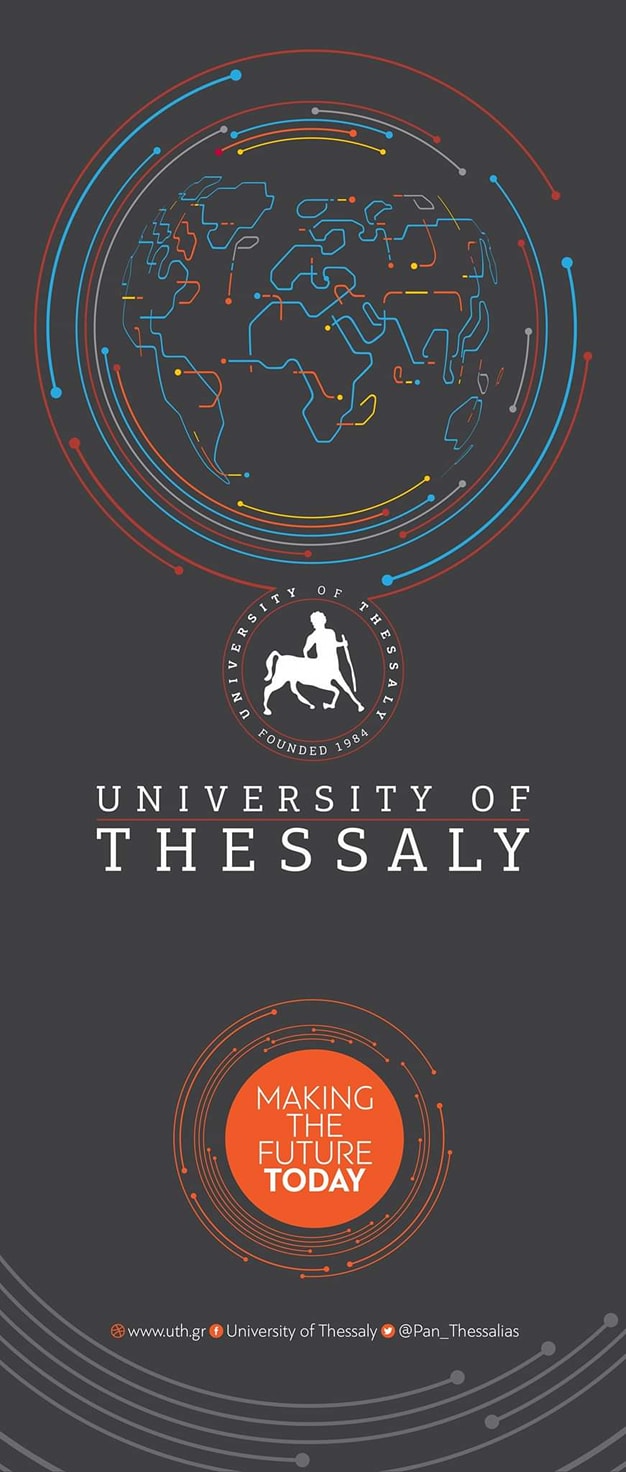Information
The University of Thessaly and the Open University of Cyprus are jointly organizing an online master’s degree programme (MSc) titled Master of Science (MSc) in “Software Engineering for Internet, Mobile and Cloud Applications”. The MSc is co-organized by the Digital Systems Department (School of Technology, University of Thessaly) and the Faculty of Pure and Applied Sciences (Open University of Cyprus). As a purely online distance learning course, all its lectures and lab classes are delivered in accordance with the methods and principles of distance learning and teaching, utilizing both synchronous and asynchronous approaches.
Expected start date: Academic Year 2026-2027 (October 2026)

Objectives
The MSc program aims to train specialized executives for employment in the private and public sectors, or even for self-employment, to develop large-scale and knowledge-intensive web, mobile, and cloud applications.
In today’s distributed and mobile environments (intranets, internet), the development of large-scale applications requires specialized knowledge and skills that go far beyond those that can be gained at the undergraduate level. Indicatively, some key sectors that are already shaping the developments in the field on a global scale include technologies such as Cloud Computing and online Services (XaaS), Mobile and Pervasive Computing, Big Data Analysis (Data Analytics, Data Mining), and Semantic Web.
While undergraduate degree holders are efficient in meeting the basic requirements of businesses and organizations, MSc graduates are further equipped with that specialized knowledge and extra skills which will render them ideal candidates for several positions of increased responsibility and prestige. To this end, MSc holders would ideally be in a position:
- to work as software engineers, either as self-employed professionals or as members of cutting-edge teams, both in the private and public sector, in the field of Software Engineering for Web, Mobile, and Cloud Computing Applications,
- to upgrade their programming skills and enhance their scope of expertise by utilizing information and ideas from other disciplines that would enable them to develop and implement cutting-edge technology applications,
- to acquire the appropriate theoretical background to further pursue their postgraduate studies on a doctoral level in the specific field.
To achieve the above, the MSc:
- provides students with a wide and varied theoretical background,
- introduces a rigorous practical dimension to each course module in the form of assignments carried out by the students, and
- organizes online events to bring students together with the actual world of employment as well as with locally and internationally recognized scholars, scientists and professionals, to familiarize them with the work produced in the field.
Admissions – Selection Process – Tuition Fees
All applicants must hold an undergraduate degree from any university department in Greece, Cyprus, or any other academically recognized institution based abroad. Eligibility for admission is decided by the following formula:
Eligibility Score = 75% * Total_Academic_Score + 25% * Interview_Score
The maximum number of admissions per year is set to one hundred and twenty (120) postgraduate students.
The initial selection of eligible applicants is based on a strictly academic merit/excellence rating and ranking process (on a scale of 1-100) resulting from the following criteria:
| Selection Criteria | Evaluation Points | |
| 1 | Overall performance in undergraduate studies relevant to the subject of the MSc as proven by the candidate’s academic transcripts and records. | 30 |
| 2 | Relevance of undergraduate thesis topic to the objectives of the MSc | 15 |
| 3 | Any professional experience in a field relevant to the content of the MSc | 10 |
| 4 | Any kind of scientific and/or research work in the immediate field of the MSc, such as postgraduate degrees, publication of research papers in reputable scientific journals, or conference proceedings. | 15 |
| 5 | English Language Competence Level | 10 |
| 6 | Participation in European Exchange Programs | 5 |
| 7 | ICT competence | 5 |
| 8 | Letters of Recommendation ( total ) | 5 |
| 9 | Any additional qualifications and/or achievements, such as attendance of seminars, paper presentations, additional studies, etc. | 5 |
| Total Academic Score | 100 |
The number of evaluation points in each criterion in the table above constitutes the maximum grade that can be awarded, according to the judgment of the Academic Selection Committee. As regards the first evaluation criterion, the score results from the product of the candidate’s first degree (BSc) grade multiplied by the evaluation points of the specific criterion. The maximum number of points resulting from the first stage of the evaluation process is equal to 100 and bears a weighting factor of 75%.
In the second phase of the evaluation, the first (1.5 * maximum_number_of_admissions) candidates qualify. This phase includes a remote interview of the candidate by the Academic Selection Committee. Every candidate will be assessed by each member of the Committee on a scale ranging from 0 to 100 based on his/her personality traits, such as his/her ability to persuasively and lucidly convey meaning in communication by displaying judiciousness, breadth of knowledge, and diligence. Efficiency in a teamwork environment, as well as research and growth perspective, are also considered.
The final interview score for each candidate is the average score given by the Selection Committee members and is weighted at 25%. The Committee creates the interview minutes with each candidate’s performance, attaching each evaluator’s assessment.
The Academic Selection Committee compiles the list of candidates eligible to attend the MSc program based on the weighted scores in the first and second phases. The final selection is based on the order of success in this list (those who score the same as the last candidate are also selected). Recipients of scholarships in a subject/field related to the MSc, are automatically enrolled in the MSc programme in excess of the total number of admissions. The minimum number of admissions to the MSc for the programme to run is twenty (20) students.
The list of selected candidates is ratified by the Department Assembly and is publicly announced by the post-graduate secretariat.
The total tuition fees for the MSc course are up to x,xxx euros.
Duration of Study – Language
The MSc has been designed as a full-time course. The duration of studies leading to the award of the MSc degree is three (3) academic semesters. The first two semesters (A and B) are devoted to the attendance of four (4) courses per semester, while the third (C) semester is intended for the research, writing, and examination of the diploma thesis. Students can submit their diploma thesis only after having successfully completed all previous semester courses.
The Coordinating Committee of the MSc, in exceptional cases and at its discretion, may allow postgraduate students to register under the status of partial attendance. In this case, students can complete the MSc in six (6) semesters, instead of three (3). In the case of partial attendance, students will have to attend two (2) modules per semester (from the list of modules taught in each semester) for the first four (4) semesters. Students will be able to submit their diploma thesis only after they have successfully completed all previous semester courses.
The MSc programme’s language of tuition is English.
Study Program – Exams
Each study semester lasts thirteen (13) weeks and comprises an equal number of lectures. All lectures are conducted online.
In each semester, the student is required to attend four out of the six available modules. During the third semester, the student is required to prepare and defend his/her dissertation. Each module corresponds to 7.5 credits (ECTS) while the postgraduate thesis corresponds to 30 ECTS. Thus, the workload of each semester corresponds to 30 ECTS, while a total of 90 credit units is required to obtain the MSc.
The examination of the semester’s modules is held at the end of each semester, and it typically occurs in February and June. Re-examination of all modules will be conducted (if required) after the completion of both academic semesters, on dates to be announced in due course.
Faculty – Teaching Staff
The following categories of teaching and faculty staff are eligible to undertake the teaching of the courses of the MSc:
- faculty members (teaching and research staff), special educational staff members, laboratory teaching staff, and special technical laboratory staff of the Digital Systems Department*,
- faculty members of the School of Pure and Applied Sciences of the Open University of Cyprus*,
- faculty members of other higher educational institutions or higher educational military academies*,
- emeritus professors or any other retired faculty and/or teaching staff members of the Digital Systems Dep. or other departments of the same or other universities,
- associate and assistant professors,
- visiting professors or researchers,
- researchers and/or specialist scientists who are members of research and technological bodies/centres/institutions in accordance with article 13A of Constitutional Law 4310/2014 (section A 258) or of other national or foreign research centres and/or institutions,
- scientists of recognized academic status and achievement, who can contribute to the MSc’s objectives by means of their specialized knowledge, expertise, and relevant experience in the field of ICT and scientific research.
* who are legally entitled to undertake further employment in excess of their standard teaching obligations
Online Course Infrastructure
For administrative support (student registration, etc.) and for academic matters (educational material, curriculum content, etc.), the responsible body is the Department of Digital Systems of the University of Thessaly.
For the implementation of the Inter‑University Postgraduate Programme (access to educational materials, online tests, examinations, communication, etc.), the Open University of Cyprus’s online infrastructure is used, as it has long-standing experience in organizing distance‑learning study programmes.
Check also: https://seimca.ds.uth.gr/en/infrastructure-en/



